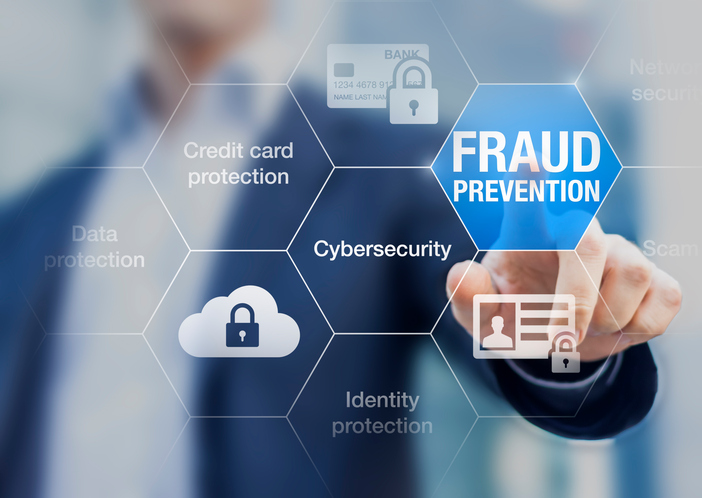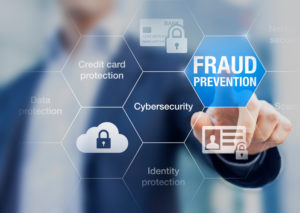By now you have probably heard that over 143 million American consumers had their personal information exposed by hackers in a data breach at Equifax. That is almost half of the citizens of the United States. So, the odds are almost 50/50 that your personal data has been compromised.
The hackers accessed people’s names, Social Security numbers, birth dates, addresses and, in some cases, even driver’s license numbers.
You are probably asking what, if anything, should I do in response to this security breach? In my opinion, there are two good options to help deter against identity thieves that may now have access to your personal information. File a 90 day fraud alert (and renew this every 90 days), or file a credit freeze. Let me provide you an overview of each to help you decide which one you may want to pursue.
90 Day Fraud Alert
The quickest, cheapest and easiest thing to do is file a 90 day fraud alert. There are three main credit bureaus, Equifax, Experian and TransUnion and they each have a record of your credit file. If you report a fraud alert at any of the three bureaus, they automatically notify the other two bureaus.
The benefits of a fraud alert:
- A fraud alert requires that any new creditor contact you personally by phone at the phone number you provide in the fraud alert to verify both your identity and obtain your verbal approval for any new credit issuance.
- A fraud alert lasts 90 days. After 90 days, you have to file another one either online, over the phone or in writing.
- There is no cost to file a fraud alert.
- When you file the initial fraud alert you can also see a copy of your credit report. I highly recommend you review this to make sure no new credit has been issued without your knowledge.
What a fraud alert does not do
Credit companies will still have access to your credit file if you have filed a fraud alert. However, they can’t issue any new credit unless they speak to you first, verify your personal information and confirm you want to apply for new credit. If your intent is to keep all potential new creditors from accessing your credit file without your permission, then you may want to consider a credit freeze instead.
How to file a fraud alert with Experian
I have used Equifax in the past to file fraud alerts, but after the hack I decided to use Experian instead and file a fraud alert online for my wife and I. If you are interested in filing a fraud alert online at Experian, go to www.experian.com, then:
- Scroll down to the “fraud alert” box and click on it, then
- Scroll down to the “add a fraud alert” box and click on it, then
- Scroll down to the “initial security alert (90) days” and click on it, then
- File the fraud alert by typing in all of your personal data in the 2nd half of the page in the “Add a fraud alert using your personal information” section, (note, you only file the top half of the page if you have filed a report with the police due to identity theft), then
- Submit the fraud alert. You will then have the option to have a confirmation emailed to you and you can also print a report, which is your option to view your credit report. Definitely do this and review it! You will also receive fraud alert confirmations in the mail from each of the three bureaus typically a week or so after the filing.
You have the option of filing a fraud alert online or over the phone. I provided the online method at Experian, but you may feel more comfortable calling them or contacting another bureau directly. At the bottom of this article I am providing the contact info for each credit bureau to help you with a fraud alert or credit freeze.
The 90 day fraud alert is a great deterrent, but it is not perfect. If your personal information has been compromised, then someone could attempt to apply for new credit with your identity someday in the future, even years later. Thus, rolling fraud alerts every 90 days are a great help. (Yes, you need to repeat the fraud alert filing every 90 days!) The next, more protective option is a credit freeze.
Credit Freeze
Unlike the fraud alert where you only have to file the alert at one credit bureau and they update the other two bureaus, a credit freeze requires that you file it at each of the respective three credit bureaus. There may also be a cost of $5 to $10 for each filing. The cost varies by state.
When you initiate a credit freeze you are locking down your credit file to any new inquiries. When the credit freeze is implemented, each of the three credit bureaus will issue you a password or pin number. You need to keep these pin numbers and passwords in a safe place for future reference. The next time you apply for new credit, you will need to ask the creditor which credit bureau they use to run credit file checks, and then call that specific credit bureau with one of your pin numbers or passwords to “thaw” your credit freeze and allow temporary access to your credit file. My understanding is that the thaw can take up to a few days and there may also be a cost of up to $10 for using your pin/password each time. So this process can be a hassle when applying for new credit.
Examples of when your credit file needs to be reviewed
You are probably thinking “well, I hardly ever apply for any new credit so this seems like a great option for me.” Below is a list of common instances when your credit file needs to be accessed. So keep this “hassle factor” in mind when considering a credit freeze.
- When you apply for a new cell phone contract.
- If you move and need to sign up for new utilities.
- If you switch cable companies.
- If you buy a car and decide to finance it.
- If you apply for a mortgage or home equity line of credit.
- If you apply for a new credit card.
- If you need access to student loans.
- When applying for a job.
- Opening your SSA.gov account.
- When you rent a home or apartment.
Contact info for the credit bureaus
Below is the contact info for each credit bureau.
Equifax
Fraud alert 1-888-766-0008
Credit freeze 1-800-349-9960
Experian
Fraud alert or credit freeze 1-888-397-3742
Trans Union
Fraud alert or credit freeze 1-888-909-8872
Your free annual credit report
While a fraud alert and a credit freeze are both great hurdles to slow down identity thieves, I still encourage everyone to take another security precaution by downloading and viewing your full credit report at www.annualcreditreport.com. Each of the three credit bureaus allow you a one-time per year access to your credit report at no cost through the www.annualcreditreport.com website. You should review this annually to make sure no new credit has been issued without your knowledge. In addition, I would encourage you to review every single current and historical credit line on your report to make sure the balance and any open or closed credit lines are current and up to date.





